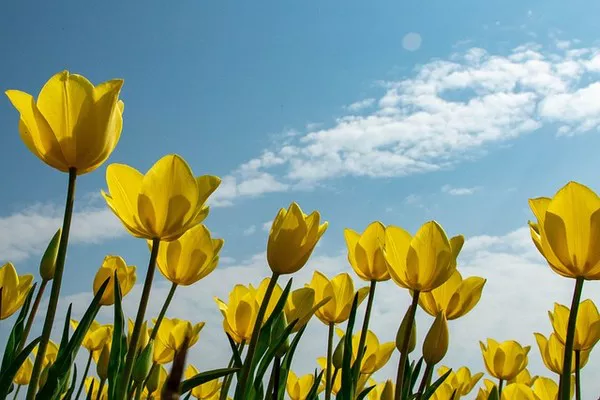In a world filled with the hustle and bustle of modern life, the allure of flowers remains timeless. Beyond their aesthetic appeal, flowers possess a unique ability to evoke joy and happiness in individuals. This phenomenon has piqued the interest of scientists and researchers alike, leading to a deeper exploration of the connection between flowers and human well-being. In this article, we delve into the science behind the happiness that blooms within us when surrounded by flowers.
Evolutionary Perspective:
From an evolutionary standpoint, the positive response to flowers can be traced back to our ancestors. Early humans relied heavily on their surroundings for sustenance and survival, and the presence of vibrant flowers often signaled the availability of fruits, seeds, and other edible plants. The ability to recognize and appreciate these floral indicators could have conferred a distinct survival advantage, fostering a positive association with flowers over generations.
Aesthetics and Visual Stimulation:
One of the most apparent reasons why flowers make us happy lies in their sheer beauty. The vibrant colors, intricate patterns, and delicate structures of flowers captivate our visual senses, triggering a positive emotional response. Studies have shown that exposure to natural beauty, including floral arrangements, can enhance mood and reduce stress. The visual stimulation provided by flowers activates areas of the brain associated with pleasure and reward, such as the orbitofrontal cortex and the amygdala.
The Power of Fragrance:
Beyond their visual appeal, flowers often carry enchanting fragrances that can have a profound impact on our emotional well-being. The sense of smell is intricately connected to the limbic system, which plays a key role in emotions and memories. The aroma of flowers can trigger the release of neurotransmitters like serotonin and dopamine, known for their mood-enhancing properties. Certain scents, such as lavender and jasmine, have been specifically linked to relaxation and stress reduction.
Biophilia Hypothesis:
Coined by biologist Edward O. Wilson, the biophilia hypothesis suggests that humans have an innate tendency to seek connections with nature and other living beings. Flowers, as a manifestation of nature’s beauty, align perfectly with this hypothesis. Interacting with flowers, whether through gardening or simply enjoying a bouquet, fulfills our inherent need for a connection to the natural world. This connection, in turn, can promote feelings of well-being and happiness.
Therapeutic Benefits:
Flowers have long been recognized for their therapeutic benefits in various cultures. Horticultural therapy, for example, harnesses the power of plants, including flowers, to improve mental and emotional well-being. Engaging with flowers through activities like gardening has been shown to reduce symptoms of anxiety and depression. The act of caring for plants and witnessing their growth can instill a sense of accomplishment and fulfillment.
Symbolism and Cultural Significance:
The cultural and symbolic significance of flowers also contributes to the positive emotions they evoke. Throughout history, different cultures have ascribed various meanings to specific flowers, associating them with emotions, events, and sentiments. For example, the rose is often associated with love and passion, while the lotus symbolizes purity and enlightenment. The knowledge of these cultural symbols enhances our appreciation for flowers, imbuing them with layers of meaning that resonate on a deep emotional level.
Connection to Social Bonds:
Flowers have the remarkable ability to strengthen social bonds and connections. The act of giving or receiving flowers is often associated with positive social interactions, gratitude, and expressions of affection. Research suggests that individuals who receive flowers experience an immediate uplift in mood and a long-lasting positive effect on their emotional well-being. The shared experience of enjoying flowers in a social context fosters a sense of connection and belonging.
See Also What Annual Flowers Do Deer Not Eat
Conclusion:
In conclusion, the happiness that flowers bring us is not merely a subjective sentiment but a result of a complex interplay between evolution, aesthetics, fragrance, therapeutic benefits, cultural symbolism, and social connections. From an evolutionary perspective, our ancestors may have developed an inherent affinity for flowers due to their association with survival. Today, the visual and olfactory delights of flowers continue to captivate our senses and positively influence our emotional and mental states.
Whether adorning our homes, gracing special occasions, or simply brightening our day, flowers serve as nature’s own antidepressants. As we unravel the intricate tapestry of the science behind floral bliss, it becomes clear that our connection to flowers runs deep, transcending mere aesthetic pleasure to touch the very essence of our well-being. So, the next time you find yourself smiling at a bouquet of flowers, know that it’s not just a fleeting emotion but a scientifically grounded response to the beauty and positivity that blooms in the presence of nature’s delicate creations.


